Twice in my life I’ve owed everything to a GP — once when my son was a baby and a few years later when I had peritonitis.
The doctors’ experience and quick-thinking made the difference between life and death. Both have since retired, but I owe them an inestimable debt of gratitude.
It is because of those experiences, and other smaller, equally memorable ones, that I am a huge supporter of general practice. GPs are vital, the linchpin of the nation’s health. Their contribution is invaluable.
But here’s the thing. Had I not been able to take my son to see the GP face to face, it is possible his illness — mastoiditis — would not have been detected. Thanks to antibiotics it has become, as the doctor said then, a disease you only really read about in medical textbooks.

Twice in my life I’ve owed everything to a GP. But had I not been able to take my son to see the doctor face to face, it is possible his illness would not have been detected (stock image)
It was certainly the first case he had seen, despite being a seasoned practitioner. Even with a physical examination the problem is hard to spot. Luckily he did, and my son — then just a few months’ old — was rushed to our local hospital, and then St Thomas’ in London, where surgeons drilled a hole in his head to drain an abscess on his brain caused by the infection.
And it was a similar story with my leaky appendix. I’d had stomach pains and vague sickness on and off. That day I woke feeling particularly icky, so rang the surgery and was given an afternoon appointment — which I almost cancelled when, at lunchtime, I felt perkier.
But I went anyway, said I was feeling a little better and my GP said she would have a general prod to be safe. She did her thing, then requested an ambulance. I spent the next two weeks in hospital recovering from a four-hour operation. I’ve never felt so ill in my life.
The outcome in both cases would have been very different had the consultations taken place by phone — or online. It was the human interaction that made all the difference.
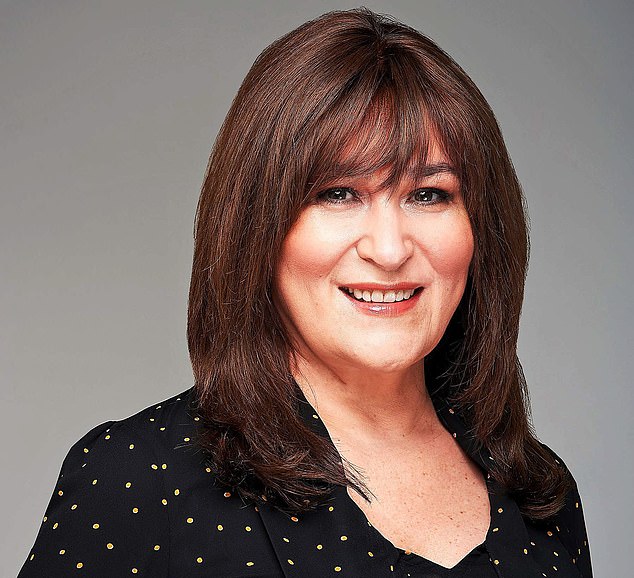
The outcome in both cases would have been very different had the consultations taken place by phone — or online. It was the human interaction that made all the difference. Pictured: Sarah Vine
That is why the current situation, in which just 57 per cent of GP appointments are in person compared with 80 per cent before Covid, is not only unacceptable: it’s dangerous. And why this newspaper is so right to insist that we do better.
Dr Chaand Nagpaul, chair of the BMA council, can rant all he likes about Covid safety measures and ‘an onslaught of abuse and media scapegoating of GPs and their staff’. The fact remains: patients are suffering, even dying, and it is his job — and duty — to do something about it.
Of course, there are many brilliant practitioners out there, who, despite the obstacles, manage to offer first-class care. But it is a postcode lottery and shouldn’t be.
The fact Dr Nagpaul is so defensive is, in many ways, the root of the problem. There seems to be a fundamental refusal to accept the existence of a problem, let alone that he and his members should in any way be held accountable.
Instead of excuses, he should offer solutions. Instead of bleating about workload, he should find out why, if GPs are, as he claims, ‘seeing more patients than ever, working longer hours than ever’ it does not seem to be translating into adequate care.
Though he is referring to NHS appointments, many GPs are also seeing patients privately, as they are free to. Given the difficulties many patients have getting a slot with a GP and the number of private helplines springing up, I do wonder if there might not be some crossover.
Abuse is unacceptable, but many patients feel exasperated at being unable to see a doctor face to face.
Yet there are frustrations on both sides: my surgery, for example, has a long recorded message designed to put off as many callers as possible — and when you do finally get through, they’re about as helpful as a Soviet border guard. I’ve been trying to get an appointment for weeks. I’ve all but given up.
I still have huge respect for GPs, who do so much for us all and who have been a vital part of the fightback against Covid-19. But this relentless drive to move to a remote working model is not OK.
Of course there are times when a telephone conversation is appropriate — as when I had swine flu in 2008, my GP dealt with me remotely, prescribing treatment and antibiotics for secondary infection.
But as a general rule, people need to see their doctors. Normal service must be resumed as soon as possible. It is up to the BMA and No 10 to make it happen. Ideally before the forthcoming National Insurance rise reminds us of quite how much we’re paying for this shambles.
Emma edges out the Sloanes
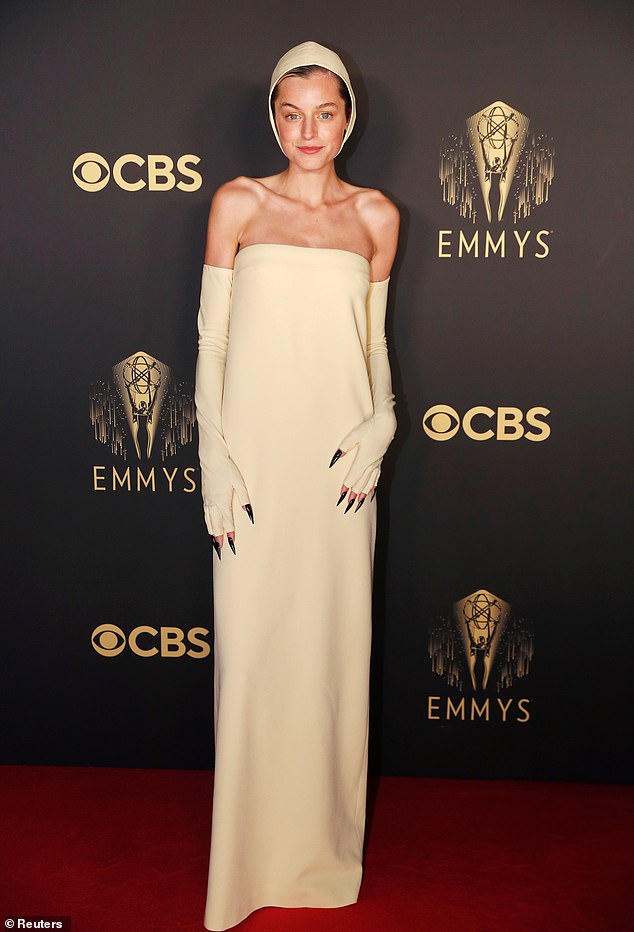
Very bizarre outfit choice for Emma Corrin at the Emmys (pictured). I mean, it doesn’t look bad, just rather odd
Very bizarre outfit choice for Emma Corrin at the Emmys. I mean, it doesn’t look bad, just rather odd.
I wonder whether maybe she thought after playing the Sloane Ranger to end all Sloane Rangers, Princess Di, she had to do something ‘edgy’ to avoid being typecast.
Mission accomplished, I’d say.
All credit to Daniel Craig in these gender-fluid obsessed times for having the balls to say that James Bond is and always will be a man — despite endless attempts by the wokerati to put a woman in the role.
Besides, let us not forget what happened when they turned the Time Lord into a woman on Doctor Who.
It’s plain spineless
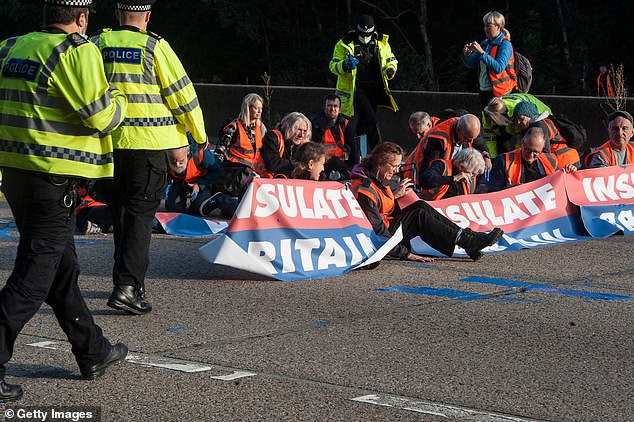
I can’t understand why the police are being so spineless with the Insulate Britain jokers (who, as some wag on the radio pointed out, sounds awfully like a breakaway Brexit faction)
I can’t understand why the police are being so spineless with the Insulate Britain jokers (who, as some wag on the radio pointed out, sounds awfully like a breakaway Brexit faction).
After all, only a few months ago, officers were trampling over flowers and candles and dragging away women at a perfectly peaceful — and non-obstructive — vigil for Sarah Everard.
Now they’re kow-towing to a group whose actions are far more disruptive.
What rights do these nutters have that hundreds of ordinary people gathered to mourn the murder of an innocent woman don’t?
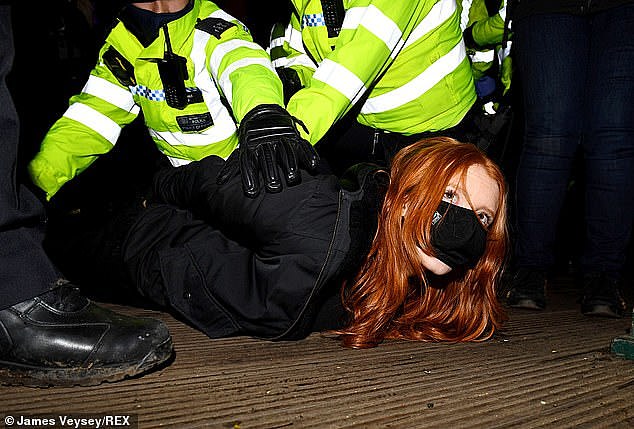
After all, only a few months ago, officers were trampling over flowers and candles and dragging away women at a perfectly peaceful — and non-obstructive — vigil (pictured) for Sarah Everard
Oh, the irony. Douyin, the Chinese version of TikTok, has announced it will limit usage for under-14s to just 40 minutes a day.
Meanwhile, actual TikTok (which is owned by the same firm that owns Douyin and which, in turn, is part-owned by Beijing) has no such settings for minors, despite the fact that it is increasingly becoming associated with spiralling mental health problems and other toxic trends.
Only the other day, a nine-year-old boy nearly died after he succumbed to a viral challenge in which he swallowed a clump of magnets.
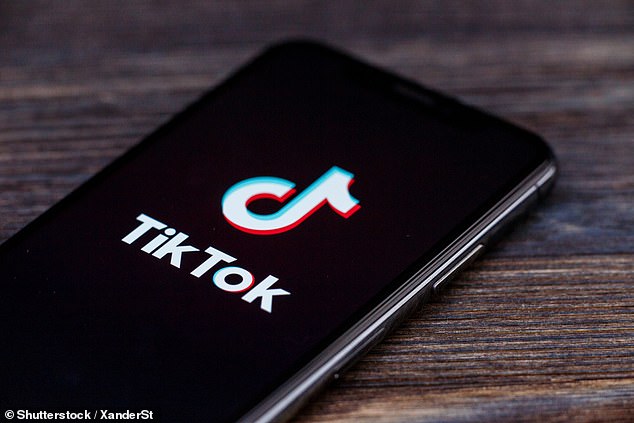
Douyin, the Chinese version of TikTok, has announced it will limit usage for under-14s to just 40 minutes a day (file image)
Now, I’m not one for conspiracy theories, but it does remind me of a chat I once had with a top executive at Google who told me that neither of the company’s founders would allow wifi in their homes because of the potential damage that unrestricted internet use could do to their children.
If China won’t let its kids spend more than 40 minutes a day looking at social media, why the hell do we?
In tonight’s royal TV tribute (BBC1, 9pm), Peter Phillips, the Duke’s eldest grandson, says: ‘I just have memories of him getting a new laptop or a new printer, sitting in his office and hearing him shouting at it.’
Proof that he may have been the longest-serving consort in history — but that when it came to life’s daily frustrations, Prince Philip was just like the rest of us.
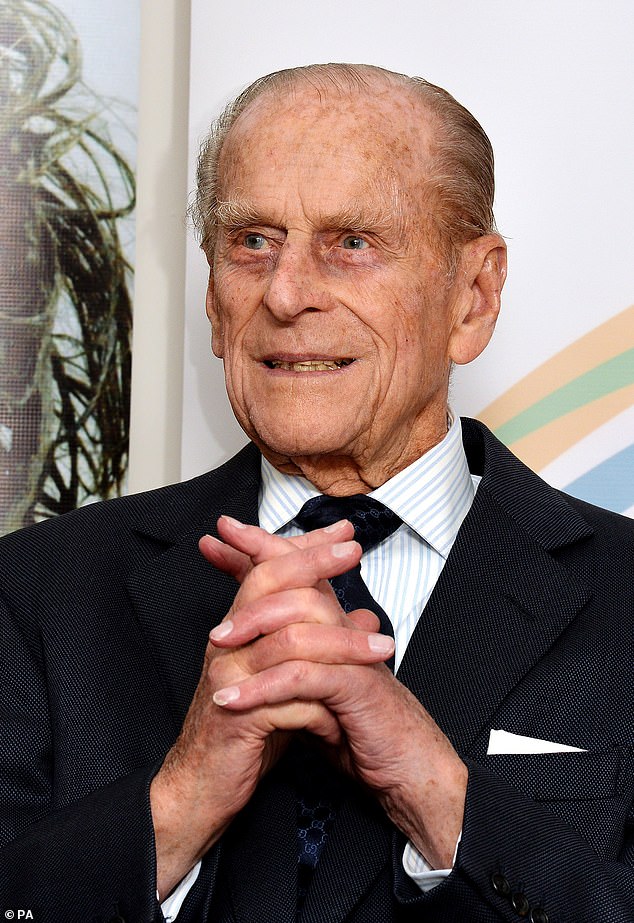
Prince Philip’s eldest grandson, says: ‘I just have memories of him getting a new laptop or a new printer, sitting in his office and hearing him shouting at it’
I do wish so-called experts would make up their minds. One minute it’s all ‘exercise is irrelevant, it’s being thin that counts’.
Now they tell us you can be ‘fit and fat’ after all, and people simply need to focus on exercise, rather than dieting, to live longer.
Isn’t the problem here that humans come in all shapes and sizes — and instead of relying on charts and statistics, medical science needs to go back to assessing people as individuals?
They could start by doing away with the ridiculous BMI (body mass index), which has been the bane of my life.
Even when I was 16 and a size 10 (can you believe it?) my BMI was judged too high. It led to a lifetime of dieting and self-loathing as I fought to keep my weight within the accepted range — with the result that, like many others (often women) I messed up my metabolism.
Too much for young minds
A survey by the Children’s Commissioner for England, Dame Rachel de Souza, has found that about a fifth of children are unhappy or anxious in their daily lives.
Teenage girls in particular cite mental health issues as a problem, and one eight-year-old, when asked what she would change about her life, said: ‘I would change my mental health because I can get quite sad and it doesn’t feel quite right.’
All of which is worrying and must be addressed. That said, I don’t think I even knew what the words ‘mental health’ meant when I was eight.
And while it’s good that society has made strides in destigmatising mental illness, I can’t help wondering how many of the problems young people report today are to do with the fact it’s almost all anyone seems to talk about now.
Young people’s minds are very pliable and susceptible to social cues.
It’s a fine line between acknowledging that life can sometimes be very tough and making sure help is there for those who need it — and putting dark thoughts in young heads that then become a self-fulfilling prophecy.
Source link : https://www.dailymail.co.uk/debate/article-10014601/SARAH-VINE-Twice-life-Ive-saved-GP-saw-face-face.html











